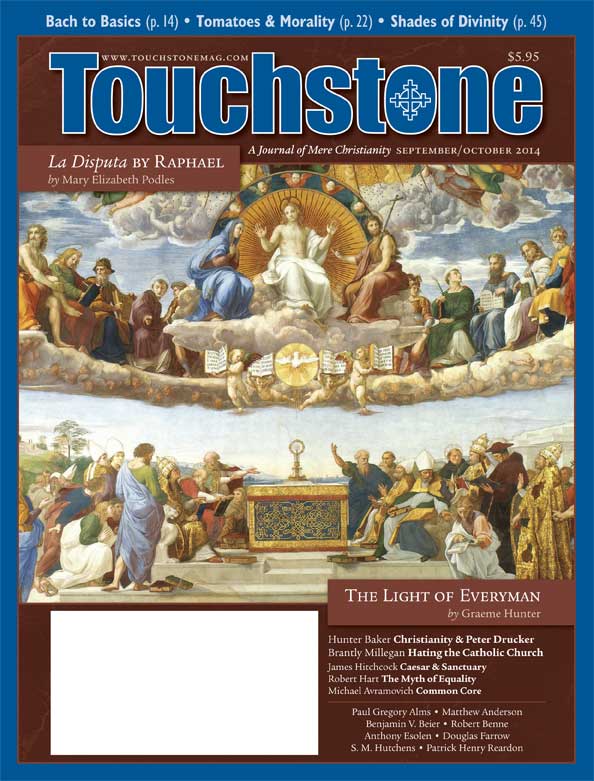View
Absence of Evil
Benjamin V. Beier on the Surprising Augustinian Grammar of The Great Gatsby
Baz Luhrmann's 2013 film adaptation of F. Scott Fitzgerald's The Great Gatsby brought with it renewed interest in the book and fresh commentaries on both the book and the film. For example, Fr. Robert Barron, an astute reader of popular culture, called the book a "sermon" demonstrating that a life of "conspicuous consumption" cannot satisfy. The boredom and listlessness of most of the characters—especially of Tom and Daisy Buchanan, who lack nothing in terms of privilege, wealth, and physical pleasure—bear out Barron's point.
This principle is keyed in the negative because it is drawn from a story filled with characters who exemplify how not to live. But the story may hint at a positive alternative, if one reads the book as an eloquent narrative restatement of the scriptural principle that God alone satisfies the human heart.
THIS ARTICLE ONLY AVAILABLE TO SUBSCRIBERS.
FOR QUICK ACCESS:
Benjamin V. Beier , Ph.D., is Assistant Professor of English at Washburn University. He and his family live in Topeka, Kansas, where they attend Most Pure Heart of Mary Catholic Church.
subscription options
Order
Print/Online Subscription

Get six issues (one year) of Touchstone PLUS full online access including pdf downloads for only $39.95. That's only $3.34 per month!
Order
Online Only
Subscription

Get a one-year full-access subscription to the Touchstone online archives for only $19.95. That's only $1.66 per month!
bulk subscriptions
Order Touchstone subscriptions in bulk and save $10 per sub! Each subscription includes 6 issues of Touchstone plus full online access to touchstonemag.com—including archives, videos, and pdf downloads of recent issues for only $29.95 each! Great for churches or study groups.
Transactions will be processed on a secure server.
more from the online archives
calling all readers
Please Donate
"There are magazines worth reading but few worth saving . . . Touchstone is just such a magazine."
—Alice von Hildebrand
"Here we do not concede one square millimeter of territory to falsehood, folly, contemporary sentimentality, or fashion. We speak the truth, and let God be our judge. . . . Touchstone is the one committedly Christian conservative journal."
—Anthony Esolen, Touchstone senior editor









